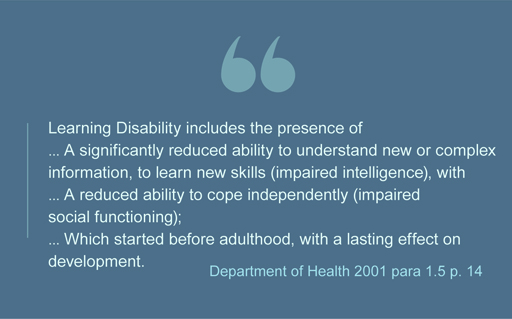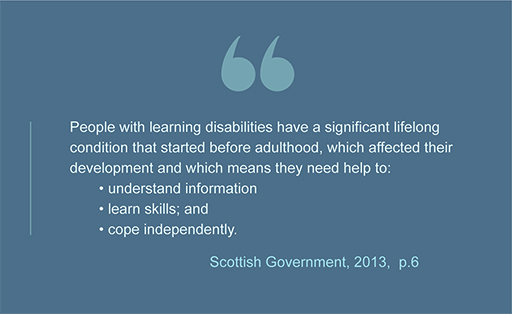2 What is a learning disability?
The previous section discussed how labels used about people with learning disabilites are controversial. But what exactly is a learning disability?
In this section you will be introduced to two recent definitions.
The definition in use in England (Figure 1) was adopted in 2001, from a White (Government) Paper called Valuing People.
The definition in the Scottish Government’s Keys to Life strategy document (2013) is similar and a little clearer (Figure 2).
You can see from both of these definitions that there are four key elements to identifying a learning disability:
- it is a lifelong condition
- you have more difficulty than others in understanding things
- you will struggle to learn new skills
- you may need some help to manage your life.
People sometimes believe that a learning disability applies to people who score less than 70 in intelligence tests, known as IQ. However, the strategy documents are unanimous – it is not enough just to measure intelligence. An assessment needs also to take account of social functioning and communication skills – in other words, how well people manage their lives.


